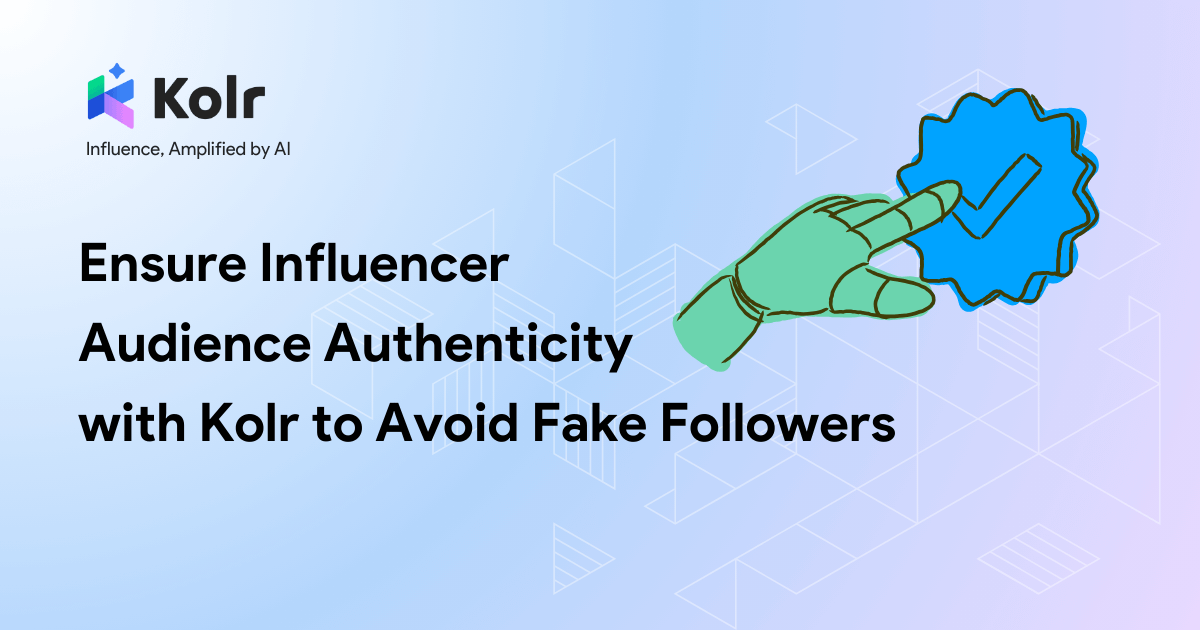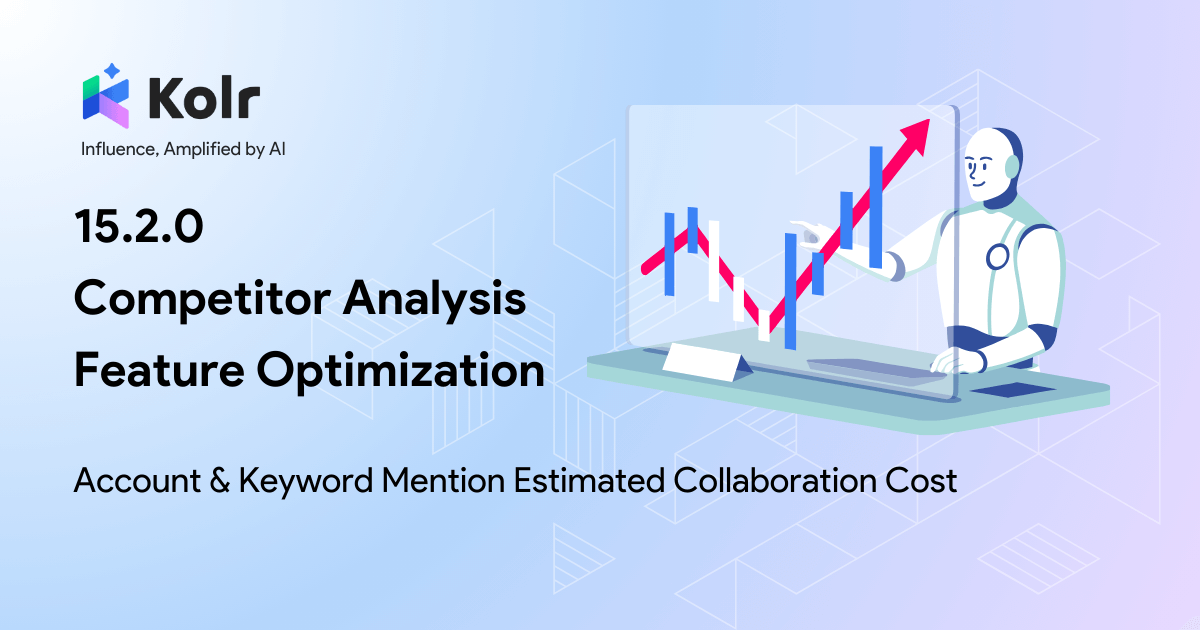In the world of influencer marketing, follower count is often the first metric brands use to gauge influence. However, the reality behind the numbers is that not all followers are real, active, or genuinely interested in the brand. Some influencers may have inflated their numbers through fake followers, leading to wasted marketing budgets. Therefore, brands should consider not just follower count but also engagement, content impact, and audience authenticity when selecting influencers.
Kolr utilizes AI technology to analyze and provide the “Audience Authenticity,” helping brands identify the proportion of genuine followers within an influencer’s total audience. This article will explore the concept of real follower rate, how Kolr detects and tracks this metric, and how brands can leverage it to enhance their influencer marketing strategy and effectiveness.
What is Audience Authenticity?
The Audience Authenticity refers to the percentage of genuine, active followers who engage meaningfully with an influencer’s account. A higher Audience Authenticity indicates that most followers are real users who genuinely follow the content, engage in interactions, and have the potential to convert into customers or brand advocates.
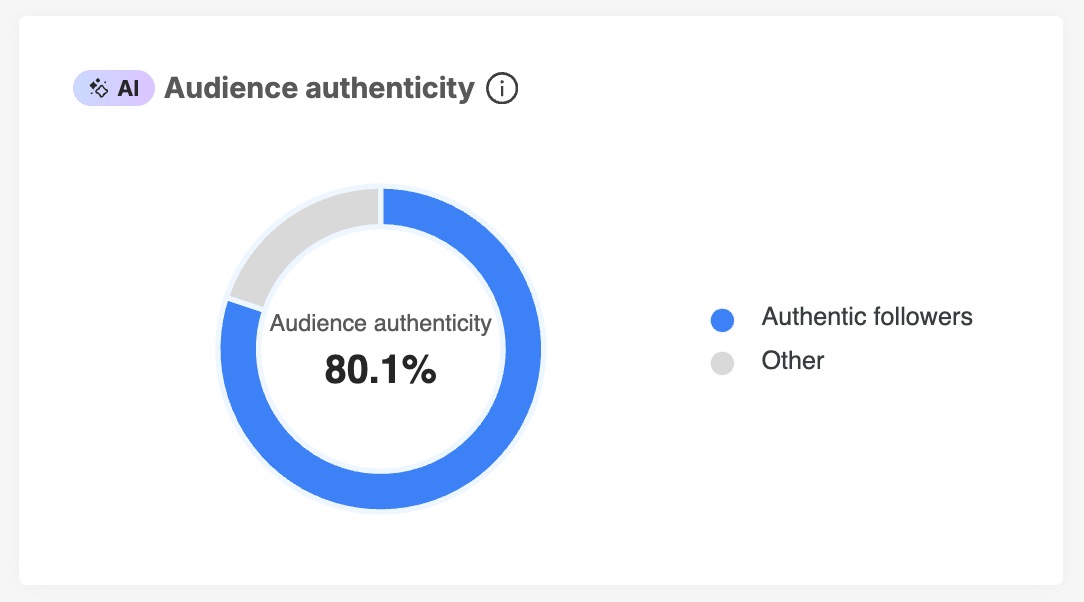
How Does Kolr Detect Audience Authenticity?
Kolr leverages proprietary AI crawling technology to analyze multiple influencer metrics, accurately identifying bots, suspicious accounts, purchased followers, and inactive users. This ensures brands engage with a genuine audience. Our core technology includes:
- Machine Learning Models: Analyzing follower behavior patterns (e.g., post activity, following/follower trends) to filter out abnormal interactions and suspicious accounts.
- Real-Time Data Updates: Continuously crawling social media data to maintain the accuracy of Real Follower Rate analysis.
Choosing the Right Influencer: Balancing Reach and Authentic Engagement
Depending on different marketing goals, brands should assess not only an influencer’s total follower count but also their Audience Authenticity. The Audience Authenticity varies across different influencer tiers:
- Nano Influencers (1K – 10K) – Authenticity Median 74%
Their followers mainly consist of friends and genuinely engaged users. While their reach is the lowest, they are ideal for word-of-mouth marketing, product reviews, and long-term collaborations to drive loyalty and conversions. - Micro Influencers (10K – 100K) – Authenticity Median 69%
Though their reach is limited, they are well-suited for niche markets, making them effective for targeted content collaboration and sales conversion strategies. - Mid-Tier Influencers (100K – 500K) – Authenticity Median 70%
With a broader audience and higher influence, they help increase brand awareness and drive moderate sales, making them a good fit for mid-budget marketing campaigns backed by performance metrics. - Macro Influencers (500K+) – Authenticity Median 75%
High-profile influencers are often verified accounts, attracting more real users and minimizing bot followers. They offer the strongest impact for large-scale brand exposure and promotional campaigns.
Based on Kolr’s random sampling data across different influencer tiers, nano and macro influencers tend to have slightly higher genuine follower ratios compared to micro and mid-tier influencers. However, when selecting influencers for a campaign, brands should evaluate not only the genuine follower ratio but also a combination of other key metrics to find the best-fit collaborators.
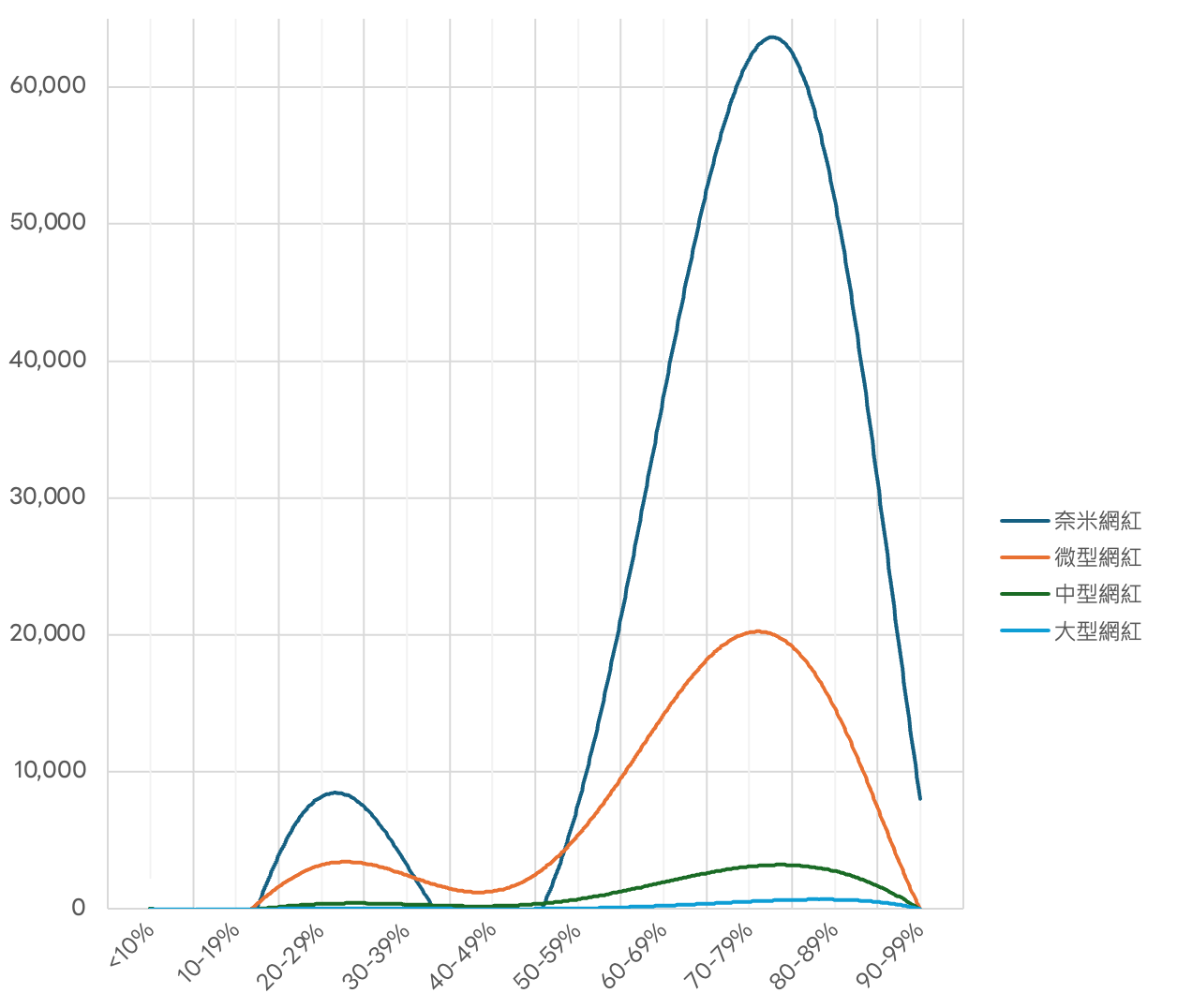
How Audience Authenticity and Other Metrics Help Brands Select the Right Influencers
- Brand and Audience Profile Fit
In addition to true follower ratio, Kolr’s audience analysis can help observe factors like audience age, gender, geography, and interests, ensuring a better match between the brand and its target audience.
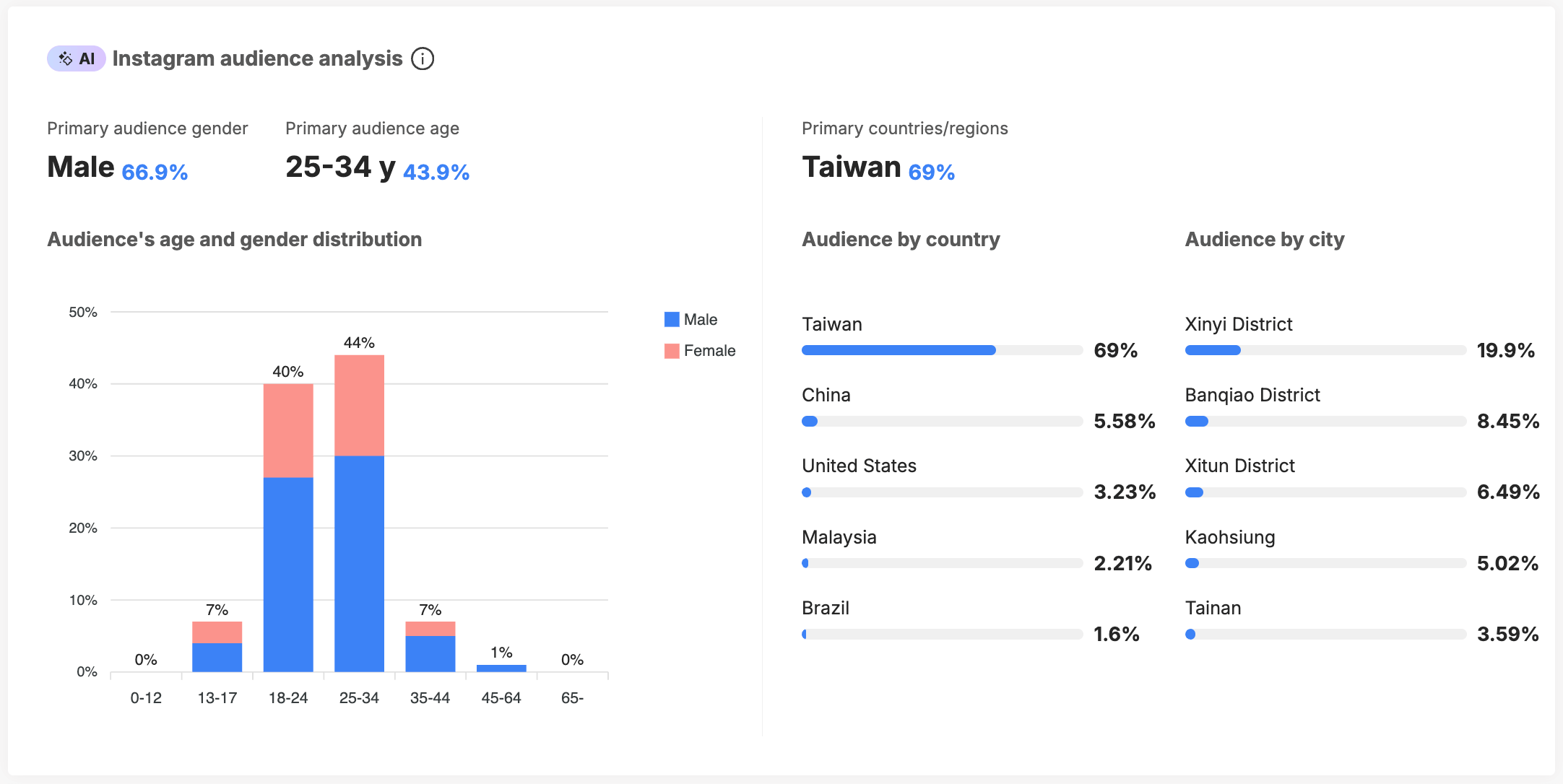
- Influencer Engagement Rate and Social Influence
By monitoring influencers’ posting frequency and comment activity, brands can assess the engagement rate of their audience. Kolr’s engagement analysis shows recent post interaction data, making influencer marketing more aligned with expectations.
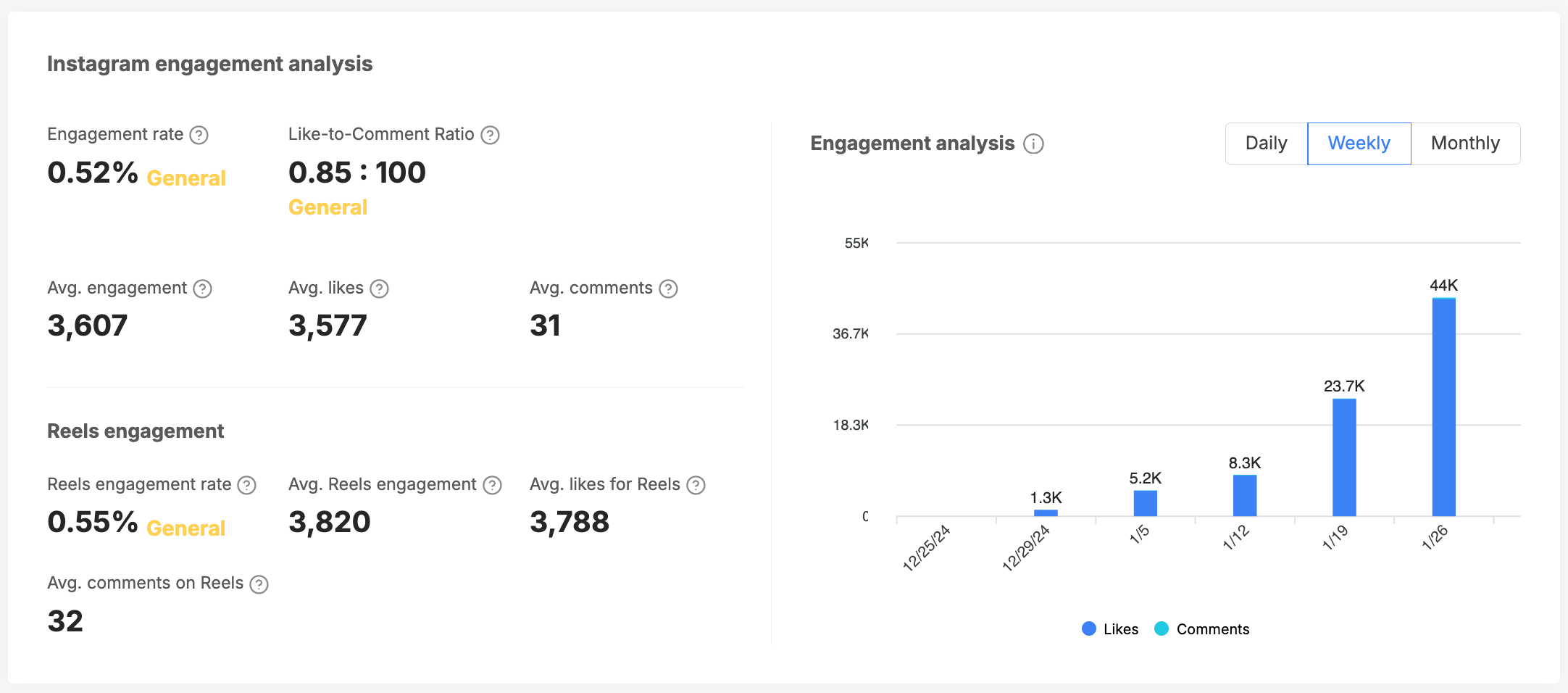
- Optimize Content Strategy with Kolr Competitor Analysis
By analyzing competitor accounts and keyword mentions, brands can further understand and compare how historical content resonates with followers, tailoring influencer content to attract the right audience and boost marketing and conversion effectiveness.
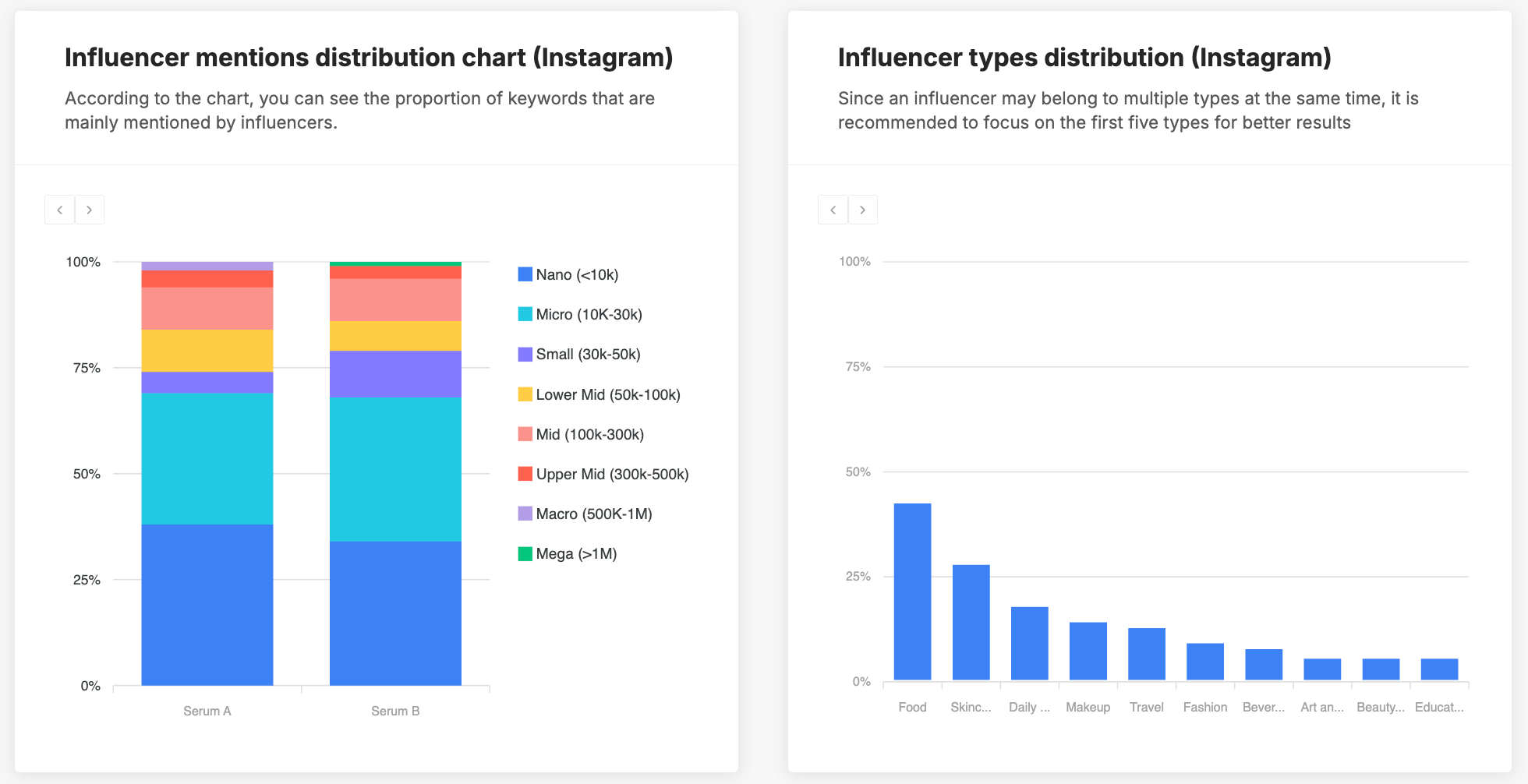
Conclusion
Successful influencer marketing is not about chasing the influencer with the most followers. Brand owners should focus more on whether the influencer’s audience profile, content style, and audience authenticity align with their marketing goals, thereby boosting social influence.
By utilizing Kolr’s AI to aggregate influencer data and detect true follower ratios, brands can effortlessly evaluate the effectiveness of influencer partnerships and drive more impactful marketing value.
Want to dive deeper into influencer marketing strategies and develop efficient tactics? Sign up for Kolr for free to create authentic influencer impact!
▶︎ This article may not be reproduced, reprinted, publicly broadcast, or publicly transmitted without permission. The copyright and image rights of the pictures and data referenced in this article belong to their respective owners.
